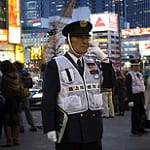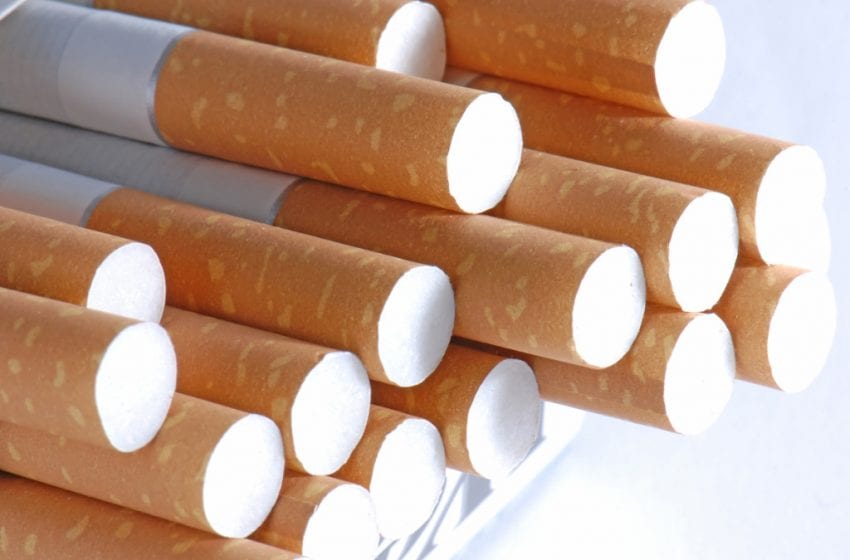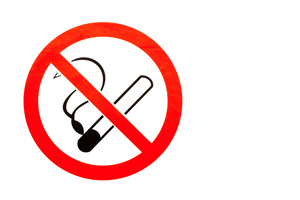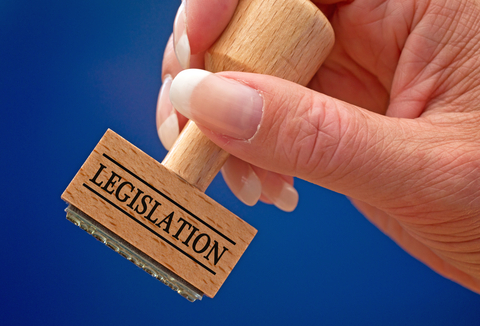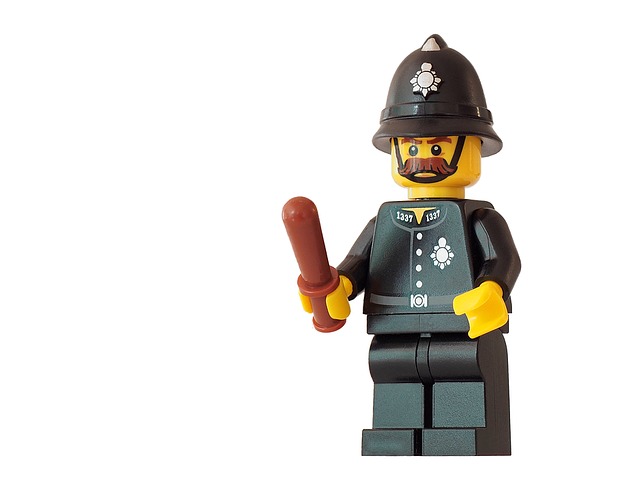The Japanese government on Friday adopted a bill aimed at strengthening restrictions on tobacco smoking in public places, according to a story in The Japan Times.
With one eye on the 2020 Tokyo Olympics and Paralympics, the government will submit the bill to the ongoing parliamentary session, aiming for its early enactment.
If enacted, the bill would revise the health promotion law by banning smoking inside such facilities as schools, hospitals and public office buildings.
The bill calls for banning smoking inside restaurants and bars that are newly opened and in existing facilities with eating and drinking areas greater than 100 square meters in area.
At those restaurants and bars, the use of heat-not-burn cigarettes would be allowed in separated smoking spaces, while the consumption of traditional cigarettes would be allowed only in closed spaces.
Category: Regulation

Smoking bill adopted

New warnings published
The Philippines’ Department of Health yesterday published new graphic warnings that will be included on cigarette packs, according to a story on ABS-CBN.
There are 12 warnings, including one depicting a mouth cancer patient, an asthma-stricken boy and a stillborn baby.
The warnings indicate, too, that cigarette ingredients are used in embalming fluid and toilet cleaners.
Such warnings were made mandatory under a nearly four-year-old law signed by former president and smoker Benigno “Noynoy” Aquino.
Aquino’s successor, President Rodrigo Duterte, last year signed an executive order restricting smoking in public places, replicating a city ordinance he instituted as Davao mayor.
About 15.9 million Filipino adults smoke tobacco products, down from about 17.0 million in 2009, according to the 2015 Global Adult Tobacco Survey.
The law is a butt
The New Zealand government has been criticised for going ahead with the prosecution of a tobacco company while acknowledging that the law on which the case is based needs to be updated.
In a press note, the New Zealand Taxpayers’ Union (NZTU) said that the 1990 legislation, written for chewing tobacco, might inadvertently ban new heat-not-burn products – a matter that was currently before the courts.
Citing a Stuff report, the NZTU quoted the Ministry of Health’s prosecutor as saying that the legislation needed to be brought up to date and that these changes were “in train”.
“The current law is cruel – smokers are taxed into poverty, and then told that alternatives, such as e-cigarettes and heat-not-burns, are illegal,” said the NZTU’s executive director Jordan Williams. “The Ministry acknowledges the law is outdated, so why proceed with court action?
“Every e-cigarette retailer and consumer has reason to worry when the Ministry of Health is taking criminal prosecutions while even acknowledging that the law is an arse.
“With the Ministry making this acknowledgement, the only reason the Government has left to not change the law is its addiction to tobacco taxes.”
A New Zealand Herald story reported on here yesterday, said that the court case involved Philip Morris defending two charges over the sale of its HEETS tobacco sticks that are used in its IQOS electronic heated-tobacco device.
If the ministry proved that this product was for oral use, but not smoking, that would make its sale illegal under current New Zealand law.
Health ministry prosecutor Sally Carter was said to have told the Wellington District Court that the issue came down to legal fine print.
“It’s the heat sticks that contain tobacco, and there’s no problem that this product contains tobacco,” she said. “The real problem is whether this product falls within the Smokefree [Environments] Act 1990.
“Significantly, because of the way the Act is structured there are issues whether in fact the product is a smoking issue, and a smoking product.
“The definition of ‘to smoke’ means that the product needs to be ignited.”
Philip Morris was said to be defending the charges, arguing that HEETS comprise a smoking product, even though the tobacco in them is heated, not burned.
Ban sought in Bengaluru
Tobacco smoking could be banned, rather than restricted, in restaurants, bars and cafés in Bengaluru, Karnataka, India, if a high-power committee on tobacco control has its way, according to a story by Sunitha Rao R for the Times of India.
Last month, the committee suggested that designated smoking zones should no longer be allowed in bars, restaurants and cafés.
It said that providing such zones provided the opportunity for establishments to violate the rules.
“No restaurant has maintained the designated smoking zone as per norms,” said committee member Dr. Vishal Rao U S. “In some cases, smoke from these zones is being let into children’s play areas, resulting in passive smoking. The recent Global Adult Tobacco survey data shows India has high exposure to second-hand smoking.”
Section 3 of the Karnataka Prohibition of Smoking and Protection of Non-Smokers Act 2001 prohibits smoking in public places.
“We’ve suggested to the BBMP (the administrative body – Bruhat Bengaluru Mahanagara Palike) to ban smoking in bars, hotels, restaurants, pubs and cafés and not allow any designated areas for smoking,” he added.
The BBMP’s joint commissioner for health, Sarfaraz Khan, said notices would be issued to all pubs, bars, restaurants and hookah bars in the city about implementing the relevant act. Simultaneously, inspections would be conducted.
Khan said that during inspections of many hotels and pubs, it was found that their smoking zones were not compliant with the act. Smoking zones could be created in restaurants with more than 30 tables, but they should “ideally” have exhaust fans and be such that smoke did not enter other rooms. These provisions were being violated everywhere, he said.
G Honnagiri Gowda, president of the Karnataka Wine Merchants’ Association and representative of the Karnataka Pub Owners’ Association, said the associations would support the ban. “It has become a nuisance for other customers every time a person smokes inside pubs,” he said.
And K Shamaraju, treasurer of the Federation of Hotel and Restaurants Association of India, said many hotels had already banned smoking. “We have implemented the rule,” he said. “Customers who want to smoke are told to go outside. Smoking is not entertained within restaurant premises.”
Yes, but is it legal?
A tobacco company and New Zealand’s Ministry of Health are locking horns in court for a week-long battle over the sale of a tobacco device, according to a story by Frances Cook for nzherald.co.nz.
Philip Morris is defending two charges over the sale of its HEETS tobacco sticks that are used in its IQOS electronic heated-tobacco device.
If the ministry proves that the product is for oral use, but not smoking, that would make it illegal under current New Zealand law.
Health ministry prosecutor Sally Carter told the Wellington District Court that the issue came down to legal fine print.
“It’s the heat sticks that contain tobacco, and there’s no problem that this product contains tobacco.
“The real problem is whether this product falls within the Smokefree [Environments] Act 1990,” she said.
“Significantly, because of the way the Act is structured there are issues whether in fact the product is a smoking issue, and a smoking product.
“The definition of ‘to smoke’ means that the product needs to be ignited.”
Philip Morris is said to be defending the charges, arguing that HEETS comprise a smoking product, even though the tobacco in them is heated, not burned.
The two charges the company faces carry a maximum penalty of NZ$10,000.
Exclusion zone contracts
Sri Lanka’s Minister of Health, Nutrition and Indigenous Medicine, Dr. Rajitha Senaratne, has proposed a reduction in the size of the proposed cigarette-sales exclusion zone around the country’s schools, according to a story in The Colombo Page.
The gazette notification of the ban is to be made on April 7, but whereas it was to have been an exclusion zone based on a 500-meter radius, that seems likely to be reduced to 100 meters.
Meanwhile, the minister is said to have proposed raising the minimum age for buying cigarettes from 18 to 20.
The story indicated that cabinet approval for the revisions was likely to be obtained in the near future.
Legislation not needed
Campaigners in Ireland say a ban on smoking in al fresco dining areas would be ‘unfair and unreasonable’ and will ‘do nothing to improve public health’.
These comments were made in response to a poll carried out on behalf of Claire Byne Live and TheJournal.ie that found that 64 percent of people would like to see smoking banned in outdoor areas where food is served. Thirty percent said ‘no’ to the ban and six percent were undecided.
“Pubs, restaurants and cafés are private businesses. Whether they choose to allow smoking outside, where there is no risk to anyone else’s health, should be up to them,” said John Mallon, spokesman for the smokers’ group Forest Ireland.
“Pubs in particular took a huge hit from the smoking ban with many closing as a direct result. Why should the future of many more businesses be put at risk on the altar of tobacco control?
“Enough’s enough. Banning smoking outside, even in al fresco dining areas, is unfair and unreasonable and will do nothing to improve public health.”
According to a story in The Journal.ie announcing the results of the poll, even without legislation in place, an ‘increasing number of restaurants have been extending smoke-free zones to outdoor areas…’.
Arresting smokers
The authorities in Meru county, Kenya, have announced plans to arrest people smoking in public, according to a story in The Star.
Meru is one of four counties in Kenya that grow tobacco; the others being Bungoma, Migori and Busia.
Meru Health executive Eunice Kobia said yesterday that the move was part of the county’s resolve to regulate tobacco use.
“At least one in every five men use tobacco,” Kobia said. “It is sad that smoking is part of the lifestyle of most of our youths.”
Kobia said that smokers had ignored designated zones and were instead smoking in public places, including in minibuses, and at social gatherings and enclosed markets.
“Residents are not aware of the effects of tobacco,” she said as she flagged off a lorry with a public-address system to campaign against tobacco use in Meru town.
Kobia said the county would ‘rehabilitate’ cigarette smokers. “They should not fear coming forward,” she added. “We will help them to change.”
Meanwhile, Kobia urged farmers to abandon tobacco in favor of other crops.
Kenya Tobacco Control Board director Mary Muthoni praised Meru for its awareness campaign against tobacco use.
Muthoni urged the county to allocate more funds to fight tobacco use, and she urged it to create youth-friendly centers to encourage people to seek rehabilitation.
Imperial Tobacco gagged
Imperial Tobacco Canada has called a press conference to air its views on various tobacco acts – views that it says it has been prevented from airing before members of a House Standing Committee.
The press conference is due to start today at 11.00 local time, and to be held in the Charles Lynch Room, Parliament Hill.
In a press note, Imperial said it would present at the meeting the content of the message it had hoped to deliver to members of the House Standing Committee of Health during their study of Bill S-5 – An Act to amend the Tobacco Act and the Non-Smokers’ Health Act, and to make consequential amendments to other Acts.
This had become necessary following the Liberal government’s refusal to allow Imperial to publicly express its opinion and answer questions from members of parliament during Health Canada’s Standing Committee public hearings on Bill S-5, which is due to end today.
Also at the press conference, Eric Gagnon, head of corporate and regulatory affairs is due to highlight the inconsistencies in the government’s approaches to the tobacco industry and the marijuana industry.
Ghanaians battling NCDs
The Ghana Non-Communicable Disease Alliance (GNCDA) is worried about what it sees as an upsurge of alcoholism and ‘excessive smoking’ in the country, especially among young Ghanaians, according to a story broadcast by the Ghana Broadcasting Corp.
Speaking at the official launch of the GNCDA in Accra, the group’s vice chairperson, Adams Ebenezer, said that exposing children to these harmful products was a violation of their human rights.
The GNCDA is a newly-formed network of Non-Governmental Organizations that was officially registered this year with the mission of becoming a leading organization contributing to reducing NCD-related deaths and disabilities, and improving the quality of lives of people living with NCDs.
It aims to support and complement the government.
Shisha tobacco had become a lifestyle product among many of the country’s young people, who were ignorant about the danger posed by the use of this product, Ebenezer said. Research had shown that a session of shisha smoking was the equivalent of smoking 100-150 cigarettes.
Ebenezer said the only known way of reducing health issues such as lung cancer, oral cancer, neck cancer, heart disease, hypertension, obesity and extreme poverty was to exercise absolute control over tobacco use, exposure to tobacco smoke and alcohol.

